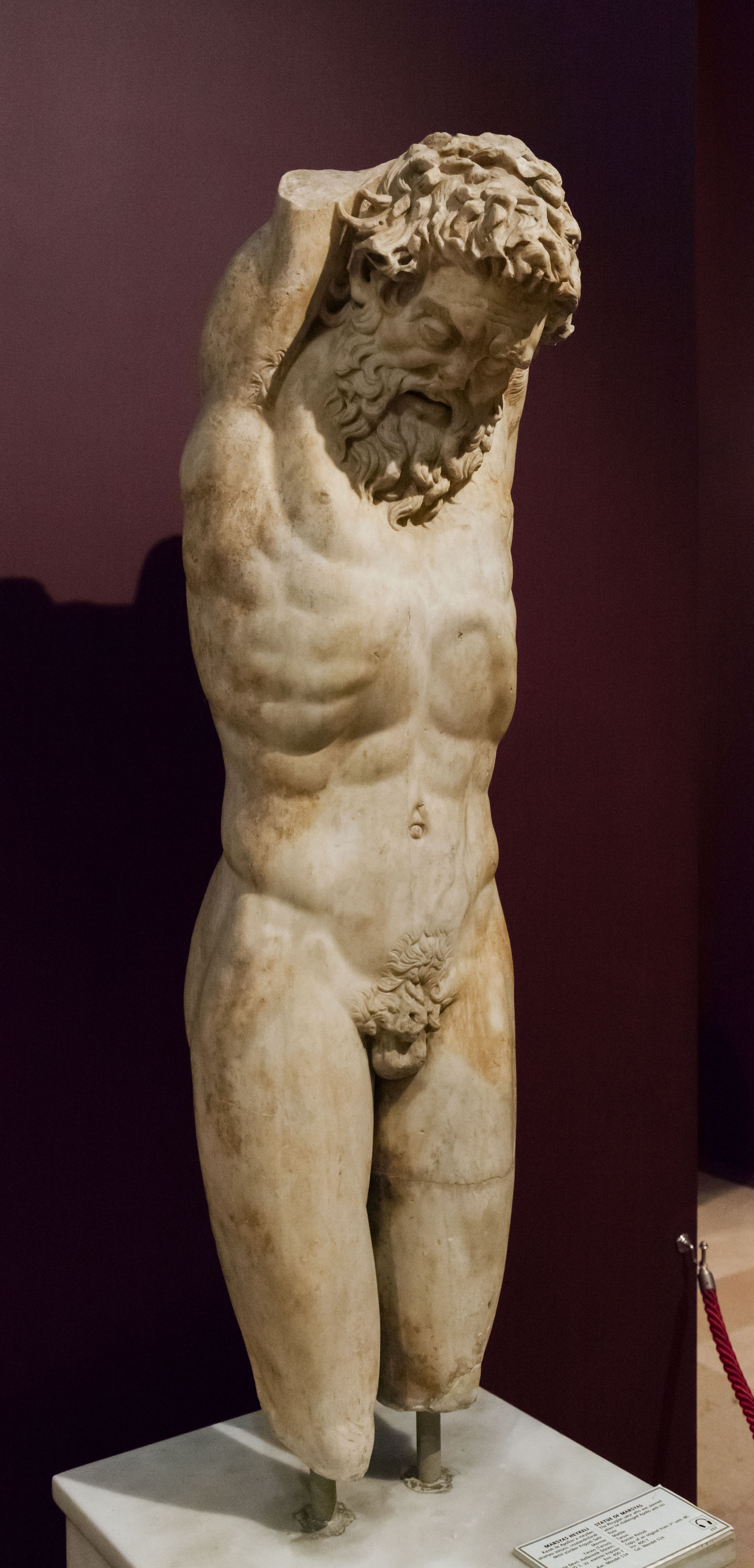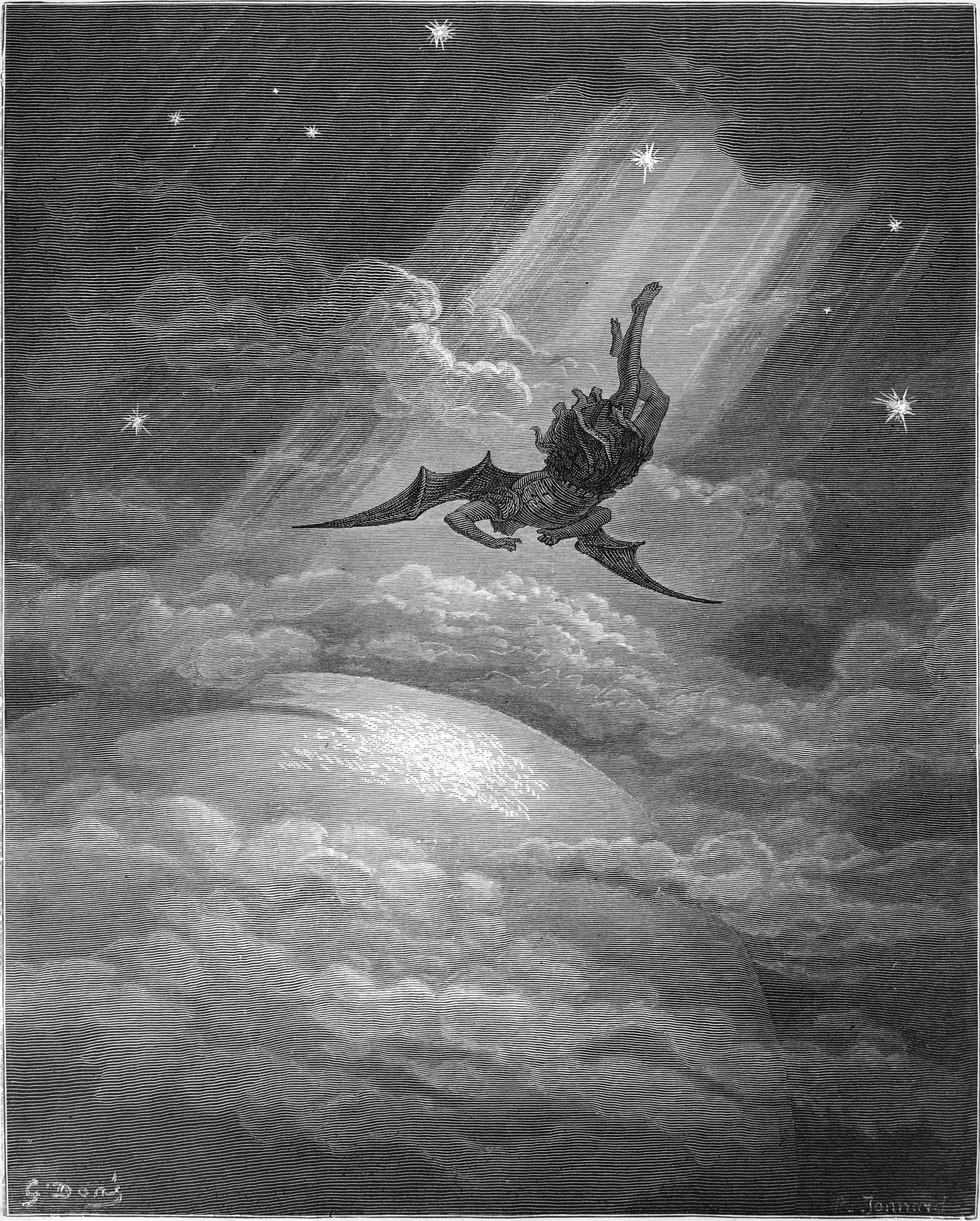|
Marsyas
In Greek mythology, the satyr Marsyas (; ) is a central figure in two stories involving music: in one, he picked up the double oboe (''aulos'') that had been abandoned by Athena and played it; in the other, he challenged Apollo to a contest of music and lost his hide and life. Literary sources from Classical antiquity, antiquity often emphasize the ''hubris'' of Marsyas and the justice of his punishment. One strand of modern comparative mythography regards the domination of Marsyas by Apollo as an example of myth that recapitulates a supposed supplanting by the Twelve Olympians, Olympian pantheon of an earlier Pelasgians, "Pelasgian" religion of chthonic Greek hero cult, heroic ancestors and Animism, nature spirits. Marsyas was a devoté of the ancient Mother Goddess Rhea (mythology), Rhea/Cybele, and the mythographers situate his episodes in Celaenae (or Kelainai), in Phrygia, at the main source of the Meander (the river Büyük Menderes River, Menderes in Turkey). Family Wh ... [...More Info...] [...Related Items...] OR: [Wikipedia] [Google] [Baidu] |
Satyr
In Greek mythology, a satyr (, ), also known as a silenus or ''silenos'' ( ), and sileni (plural), is a male List of nature deities, nature spirit with ears and a tail resembling those of a horse, as well as a permanent, exaggerated erection. Early artistic representations sometimes include horse-like legs, but, by the sixth century BC, they were more often represented with human legs. Comically hideous, they have mane-like hair, bestial faces, and snub noses and they always are shown naked. Satyrs were characterized by their ribaldry and were known as lovers of wine, music, dancing, and women. They were companions of the god Dionysus and were believed to inhabit remote locales, such as woodlands, mountains, and pastures. They often attempted to seduce or rape nymphs and mortal women alike, usually with little success. They are sometimes shown masturbation, masturbating or engaging in bestiality. In classical Athens, satyrs made up the Greek chorus, chorus in a genre of play kn ... [...More Info...] [...Related Items...] OR: [Wikipedia] [Google] [Baidu] |
Apollo
Apollo is one of the Twelve Olympians, Olympian deities in Ancient Greek religion, ancient Greek and Ancient Roman religion, Roman religion and Greek mythology, Greek and Roman mythology. Apollo has been recognized as a god of archery, music and dance, truth and prophecy, healing and diseases, the Sun and light, poetry, and more. One of the most important and complex of the Greek gods, he is the son of Zeus and Leto, and the twin brother of Artemis, goddess of the hunt. He is considered to be the most beautiful god and is represented as the ideal of the ''kouros'' (ephebe, or a beardless, athletic youth). Apollo is known in Greek-influenced Etruscan mythology as ''Apulu''. As the patron deity of Delphi (''Apollo Pythios''), Apollo is an oracular god—the prophetic deity of the Pythia, Delphic Oracle and also the deity of ritual purification. His oracles were often consulted for guidance in various matters. He was in general seen as the god who affords help and wards off e ... [...More Info...] [...Related Items...] OR: [Wikipedia] [Google] [Baidu] |
Aulos
An ''aulos'' (plural ''auloi''; , plural ) or ''tibia'' (Latin) was a wind instrument in ancient Greece, often depicted in art and also attested by archaeology. Though the word ''aulos'' is often translated as "flute" or as " double flute", the instrument was usually double-reeded, and its sound—described as "penetrating, insisting and exciting"—was more akin to that of modern woodwind instruments such as oboes or bagpipes with a chanter and (modulated) drone. An aulete (, ) was the musician who performed on an ''aulos''. The ancient Roman equivalent was the ''tibicen'' (plural ''tibicines''), from the Latin ''tibia,'' "pipe, ''aulos''." The neologism aulode is sometimes used by analogy with '' rhapsode'' and ''citharode'' ( citharede) to refer to an ''aulos''-player, who may also be called an aulist; however, ''aulode'' more commonly refers to a singer who sang the accompaniment to a piece played on the aulos. Background There were several kinds of ''aulos'', sin ... [...More Info...] [...Related Items...] OR: [Wikipedia] [Google] [Baidu] |
Büyük Menderes River
The Büyük Menderes River ("Great Meander", historically the Maeander or Meander, from Ancient Greek: Μαίανδρος, ''Maíandros''; ), is a river in southwestern Turkey. It rises in west central Turkey near Dinar before flowing west through the Büyük Menderes graben until reaching the Aegean Sea in the proximity of the ancient Ionian city Miletus. The river was well known for its sinuous, curving pattern, and gives its name to the common term, (meander), used to describe these characteristic bends in rivers. Modern geography The river rises in a spring near Dinar and flows to Lake Işıklı. After passing the Adıgüzel Dam and the Cindere Dam, the river flows past Nazilli, Aydın and Söke before it drains into the Aegean Sea. Ancient geography The Maeander was a celebrated river of Caria in Asia Minor. It appears earliest in the Catalog of Trojans of Homer's Iliad along with Miletus and Mycale. Sources The river has its sources not far from Celaenae in Phr ... [...More Info...] [...Related Items...] OR: [Wikipedia] [Google] [Baidu] |
Celaenae
Celaenae (Celænæ) or Kelainai () was an ancient city of Phrygia and capital of the Persian satrapy of Greater Phrygia, near the source of the Maeander River in what is today west central Turkey (Dinar of Afyonkarahisar Province), and was situated on the great trade route to the East. History It is first mentioned by Herodotus, in Book VII of his '' Histories''; describing the route of Xerxes on his way to invade Greece in 480 BC, he writes: "On their way through Phrygia they reached Celaenae, where two rivers rise — the Meander and one called the Catarractes, which is just as large as the Meander. The Catarractes rises right in the main square of Celaenae and issues into the Meander. Another feature of the square of Celaenae is that the skin of Marsyas the silenus is hanging there, where it was put, according to local Phrygian legend, after Marsyas had been flayed by Apollo." Xenophon describes it, in Book I of his ''Anabasis'', as the place where Cyrus mustered his Gree ... [...More Info...] [...Related Items...] OR: [Wikipedia] [Google] [Baidu] |
Phrygia
In classical antiquity, Phrygia ( ; , ''Phrygía'') was a kingdom in the west-central part of Anatolia, in what is now Asian Turkey, centered on the Sangarios River. Stories of the heroic age of Greek mythology tell of several legendary Phrygian kings: * Gordias, whose Gordian Knot would later be cut by Alexander the Great * Midas, who turned whatever he touched to gold * Mygdon, who warred with the Amazons According to Homer's ''Iliad'', the Phrygians participated in the Trojan War as close allies of the Trojans, fighting against the Achaeans. Phrygian power reached its peak in the late 8th century BC under another historical king, Midas, who dominated most of western and central Anatolia and rivaled Assyria and Urartu for power in eastern Anatolia. This later Midas was, however, also the last independent king of Phrygia before Cimmerians sacked the Phrygian capital, Gordium, around 695 BC. Phrygia then became subject to Lydia, and then successivel ... [...More Info...] [...Related Items...] OR: [Wikipedia] [Google] [Baidu] |
Athena
Athena or Athene, often given the epithet Pallas, is an ancient Greek religion, ancient Greek goddess associated with wisdom, warfare, and handicraft who was later syncretism, syncretized with the Roman goddess Minerva. Athena was regarded as the patron and protectress of various cities across Greece, particularly the city of Athens, from which she most likely received her name. The Parthenon on the Acropolis of Athens is dedicated to her. Her major symbols include Owl of Athena, owls, olive trees, snakes, and the Gorgoneion. In art, she is generally depicted wearing a helmet and holding a spear. From her origin as an Aegean tutelary deity, palace goddess, Athena was closely associated with the city. She was known as ''Polias'' and ''Poliouchos'' (both derived from ''polis'', meaning "city-state"), and her temples were usually located atop the fortified acropolis in the central part of the city. The Parthenon on the Athenian Acropolis is dedicated to her, along with numero ... [...More Info...] [...Related Items...] OR: [Wikipedia] [Google] [Baidu] |
Hyagnis (mythology)
Hyagnis () was a mythical musician from Phrygia who was considered to be the inventor of the aulos. Hyagnis was also one of the three mythical Phrygian musicians (along with Marsyas and Olympus) to whom the Ancient Greeks attributed the invention of the Phrygian mode in music. He was called the "divine" father of Marsyas probably by Olympus or Oeagrus.Hyginus, ''Fabulae'' 165 Notes References * Apollodorus, ''The Library'' with an English Translation by Sir James George Frazer, F.B.A., F.R.S. in 2 Volumes, Cambridge, MA, Harvard University Press; London, William Heinemann Ltd. 1921. ISBN 0-674-99135-4Online version at the Perseus Digital Library. * |
Oeagrus
In Greek mythology, Oeagrus () was a king of Thrace, and father of Orpheus. Biography Kingdom There are various versions as to where Oeagrus' domain was actually situated. In one version, he ruled over the Edonian kingdom in the region of Mygdonia. He is also connected with Pieria, further west, or to the vicinity of the River Hebrus to the east, the latter was said to be called 'Oeagria', in his honor. Family In the version that places Oeagrus in Pieria, his father is given as King Pierus and the nymph Methone. He was described as "a Thracian wine-god, who was himself descended from Atlas." According to ''Suda'', Oiagros was in the fifth generation after Atlas, by Alkyone, one of his daughters. This can be explained by the following genealogy: (1) Atlas by Pleione — (2) Alcyone by Poseidon — (3) Aethusa by Apollo — (4) Linus or Eleuther — (5) Pierus by Methone — Oeager. This was supported by the order of genealogy according to the historian Charax which ... [...More Info...] [...Related Items...] OR: [Wikipedia] [Google] [Baidu] |
Greek Mythology
Greek mythology is the body of myths originally told by the Ancient Greece, ancient Greeks, and a genre of ancient Greek folklore, today absorbed alongside Roman mythology into the broader designation of classical mythology. These stories concern the ancient Greek religion's view of the Cosmogony, origin and Cosmology#Metaphysical cosmology, nature of the world; the lives and activities of List of Greek deities, deities, Greek hero cult, heroes, and List of Greek mythological creatures, mythological creatures; and the origins and significance of the ancient Greeks' cult (religious practice), cult and ritual practices. Modern scholars study the myths to shed light on the religious and political institutions of ancient Greece, and to better understand the nature of mythmaking itself. The Greek myths were initially propagated in an oral tradition, oral-poetic tradition most likely by Minoan civilization, Minoan and Mycenaean Greece, Mycenaean singers starting in the 18th century&n ... [...More Info...] [...Related Items...] OR: [Wikipedia] [Google] [Baidu] |
Hubris
Hubris (; ), or less frequently hybris (), is extreme or excessive pride or dangerous overconfidence and complacency, often in combination with (or synonymous with) arrogance. Hubris, arrogance, and pretension are related to the need for victory (even if it does not always mean winning) instead of reconciliation, which "friendly" groups might promote. Hubris is usually perceived as a characteristic of an individual rather than a group, although the group the offender belongs to may suffer collateral consequences from wrongful acts. Hubris often indicates a loss of contact with reality and an overestimation of one's own competence, accomplishments, or capabilities. The term ''hubris'' originated in Ancient Greek, where it had several different meanings depending on the context. In legal usage, it meant assault or sexual crimes and theft of public property, and in religious usage it meant emulation of divinity or transgression against a god. Ancient Greek origin In ancient ... [...More Info...] [...Related Items...] OR: [Wikipedia] [Google] [Baidu] |






